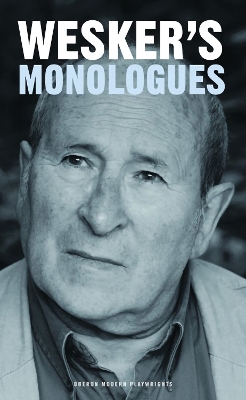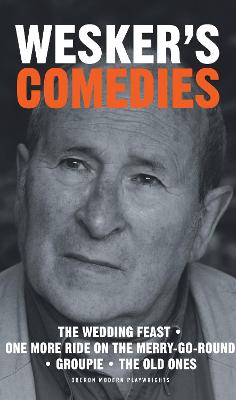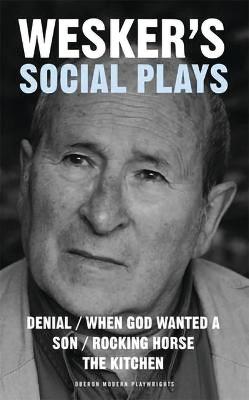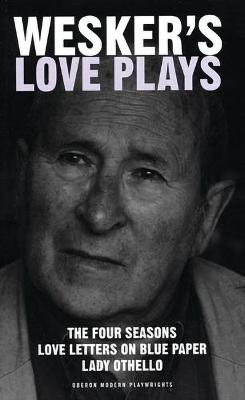Oberon Modern Playwrights
7 total works
This is Wesker's own selection of them. In addition to definitive versions of famous monologues such as Paul’s speech from The Kitchen and Beatie Bryant’s triumphant speech from the end of Roots, this volume constitutes an introduction to an unknown Wesker. To those already familiar with The Wesker Trilogy and other plays, this volume contains further evidence of this author's power and passion.The volume also includes synopses of the plays from which the monologues come.
Presented here are four epic history plays from Sir Arnold Wesker, which touch on the age-old conflicts caused by religion, science and the Establishment.
Set in the Jewish ghetto of Venice, 1563, Shylock (1972) is based on the same three stories from which Shakespeare wove his play, The Merchant of Venice. The core plot remains, but the relationships and characterisations are very different. Caritas (1980) is at once the story of a monastic young woman in the fourteenth century but also a metaphor for the wrong decisions which can imprison us for life. In 1144 a young boy was found brutally murdered in Thorpe Wood. The Jews were accused of slaughtering a Christian child touse his blood for Passover and mock the crucifixion. Blood Libel (1991) investigates a calumny which persists to this day. Meanwhile Longitude (2002) tells of the eighteenth-century race to accurately measure longitude – and claim a £20,000 reward from Parliament.
In The Wedding Feast an idealistic, altruistic shoe manufacturer arrives at an employee’s wedding, with disastrous consequences. One More Ride on the Merry-Go-Round features a comic plot involving academics who get high on a hash birthday cake, a recalcitrant daughter, and the appearance of an illegitimate son who is a magician. In Groupie 61-year-old Mattie Beancourt is shocked to discover her idol, the famous painter Mark Gorman, living alone in near poverty. She is sunny, he is curmudgeonly and the impact of their friendship is startling. Set against a scene of defiant old age, The Old Ones examines the eccentric rituals of old age and plays out the conflict between the optimistic and pessimistic spirit.
Described variously as ‘a dangerous playwright, ‘a melancholy optimist’, and ‘the unique outsider in the British Theatre’, Arnold Wesker is one of Britain’s most celebrated playwrights. This latest volume in Oberon Books’ Wesker series brings together five of his political plays. It features some of his best-known works including Chips With Everything, perhaps the most celebrated of his plays, and about which Harold Hobson, writing in The Sunday Times in 1961, said ‘this is the first play of which the Establishment need be afraid.’






